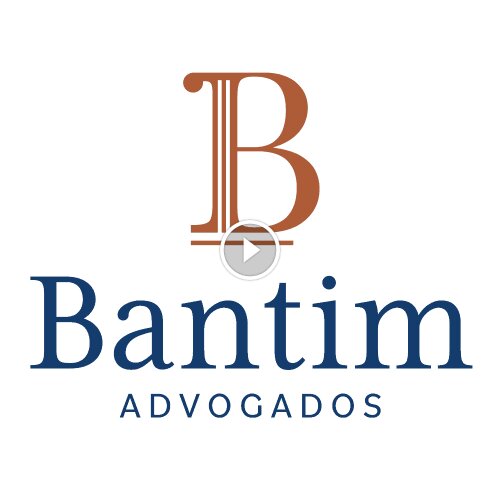Best Tax Increment Financing Lawyers in Sao Paulo
Share your needs with us, get contacted by law firms.
Free. Takes 2 min.
List of the best lawyers in Sao Paulo, Brazil
About Tax Increment Financing Law in Sao Paulo, Brazil
Tax Increment Financing, commonly known by its Portuguese acronym "OUC" (Outorga Onerosa do Direito de Construir) or "CEPAC" (Certificates for Additional Construction Potential), is an urban development tool used in Sao Paulo, Brazil. It allows municipalities to capture and direct the increase in property values resulting from public investments or changes in zoning regulations. Revenue generated through these mechanisms is often used to fund infrastructure improvements, affordable housing, and other urban projects. In Sao Paulo, Tax Increment Financing is primarily implemented through the use of Urban Operations (Operações Urbanas Consorciadas), which channel additional funds into the designated development areas without increasing direct taxation on residents.
Why You May Need a Lawyer
Navigating the legal landscape of Tax Increment Financing in Sao Paulo can be complex. There are several circumstances where professional legal advice is highly recommended:
- Understanding eligibility and obligations related to Urban Operations (Operações Urbanas Consorciadas) or participating in CEPAC auctions.
- Negotiating land use changes or leveraging additional construction rights (outorga onerosa).
- Drafting or reviewing contracts and legal instruments related to TIF projects.
- Complying with urban planning laws, development regulations, and obtaining necessary permits.
- Litigating disputes involving property values, public-private partnerships, or administrative actions.
- Ensuring transparency and compliance when working with public funds or engaging in PPPs (Public Private Partnerships).
- Clarifying tax implications and financial obligations derived from participation in TIF programs.
- Seeking redress in the event of alleged irregularities, corruption, or breach of contract within TIF projects.
Local Laws Overview
Tax Increment Financing in Sao Paulo is governed by a combination of federal, state, and municipal legislation. At the municipal level, the Sao Paulo Master Plan (Plano Diretor Estratégico) sets the framework for urban development, including how OUC and CEPAC models are applied. Key aspects include:
- Urban Operations (Operações Urbanas Consorciadas), which allow modifications to land use and zoning in specific regions, funded by the sale of CEPACs.
- Certificates for Additional Construction Potential (CEPACs) are tradable assets sold by the municipality, granting developers additional building rights.
- Revenue generated by CEPAC sales must be directed towards pre-approved urban improvements, social housing, infrastructure, and public amenities in the designated operational area.
- Stringent transparency requirements for fund allocation and management, with oversight by municipal regulatory authorities and participatory councils.
- Opportunities for stakeholder participation, including public hearings and representation in management councils for each Urban Operation.
- Legal requirements for environmental impact assessments, financial feasibility studies, and urban impact assessments for each project.
Frequently Asked Questions
What is Tax Increment Financing in the context of Sao Paulo?
It is a legal and financial mechanism that leverages increases in property value resulting from public investments or regulatory changes to fund urban improvements, especially through Urban Operations and the sale of CEPACs.
Who can participate in CEPAC auctions?
Developers, investors, and individuals can participate in public CEPAC auctions facilitated by Sao Paulo's municipal authorities, following specific registration and compliance requirements.
What kinds of projects are financed using TIF in Sao Paulo?
Most funds raised through TIF mechanisms support infrastructure upgrades, transport networks, public spaces, environmental recovery, and social housing projects within the Urban Operation areas.
How are CEPAC values determined?
CEPAC prices are set through public auctions, reflecting market demand, development potential, and the scope of authorized construction in the designated area.
Are there risks associated with participating in TIF projects?
Yes. Risks include fluctuations in property values, changes in zoning or regulations, potential legal disputes, and delays in development or non-delivery of promised infrastructure.
How are funds managed and monitored?
Funds from CEPAC sales are controlled by the municipal government, with mandatory reporting, independent audits, and oversight by participatory management councils to ensure transparency and proper allocation.
Can communities influence how funds are used?
Local communities and stakeholders can participate in public hearings, suggest priorities, and have representatives in management councils overseeing Urban Operations.
What legal instruments are involved in TIF transactions?
Key documents include CEPAC acquisition contracts, land use or building permit applications, public notices for auctions, and any agreements regarding delivery of urban improvements.
Are there specific environmental or social requirements?
Each Urban Operation project requires robust environmental impact and social impact assessments, as mandated by law, along with targeted investments in sustainability and affordable housing.
How can I challenge a decision or address a dispute involving TIF?
Disputes can be resolved through administrative appeals with municipal authorities, litigation in courts, or alternative dispute resolution mechanisms. Hiring a specialized lawyer is crucial for effective representation.
Additional Resources
If you need more information or support regarding Tax Increment Financing in Sao Paulo, consider reaching out to the following resources:
- Municipal Government of Sao Paulo - Secretaria Municipal de Urbanismo e Licenciamento (SMUL), the main urban planning authority.
- Cidade Aberta - official transparency portal for monitoring CEPACs and Urban Operations.
- Conselhos Gestores das Operações Urbanas Consorciadas - management councils with public participation for each Urban Operation.
- Ministério Público do Estado de São Paulo - offers legal guidance in cases involving public interests or irregularities.
- Instituto Brasileiro de Direito Urbanístico (IBDU) - promotes urban law research and advocacy.
- Local Bar Association (OAB-SP) - provides referrals to lawyers specializing in urban and real estate law.
Next Steps
If you need legal assistance with Tax Increment Financing in Sao Paulo, follow these steps:
- Identify your specific needs, such as understanding eligibility, resolving disputes, or evaluating contract terms.
- Gather all related documents, public announcements, and correspondence concerning the Urban Operation or CEPAC transaction.
- Contact specialized lawyers with experience in urban law, real estate, or public-private partnerships in Sao Paulo.
- Request an initial consultation to discuss your situation and evaluate possible courses of action.
- Stay informed about developments by attending public hearings or following updates from trusted resources listed above.
- Consider alternative resolution processes, when appropriate, to expedite solutions and reduce litigation costs.
- Act proactively, as legal deadlines and auction dates are strictly enforced under local regulations.
By seeking expert advice early and leveraging available resources, you can protect your interests and ensure compliance with the complex frameworks governing Tax Increment Financing in Sao Paulo, Brazil.
Lawzana helps you find the best lawyers and law firms in Sao Paulo through a curated and pre-screened list of qualified legal professionals. Our platform offers rankings and detailed profiles of attorneys and law firms, allowing you to compare based on practice areas, including Tax Increment Financing, experience, and client feedback.
Each profile includes a description of the firm's areas of practice, client reviews, team members and partners, year of establishment, spoken languages, office locations, contact information, social media presence, and any published articles or resources. Most firms on our platform speak English and are experienced in both local and international legal matters.
Get a quote from top-rated law firms in Sao Paulo, Brazil — quickly, securely, and without unnecessary hassle.
Disclaimer:
The information provided on this page is for general informational purposes only and does not constitute legal advice. While we strive to ensure the accuracy and relevance of the content, legal information may change over time, and interpretations of the law can vary. You should always consult with a qualified legal professional for advice specific to your situation.
We disclaim all liability for actions taken or not taken based on the content of this page. If you believe any information is incorrect or outdated, please contact us, and we will review and update it where appropriate.










